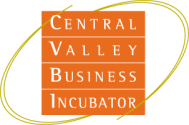At the American Water Summit held Nov. 14 and 15 in Chicago, Jes Munk Hansen, president of Grundfos North America, assisted the event’s hosts in presenting the inaugural American Water Awards to companies, utilities and projects that implemented smarter models for doing business in the water sector.
Most notably, Hansen honored the City of Fresno, Calif., with an award of distinction for Utility Performer of the Year. Martin Querin, assistant director of the Department of Public Utilities’ Water Division, accepted the award on behalf of the city.
The exchange was especially meaningful because of Grundfos’ history with Fresno, the birthplace of its North American presence. Indeed, ever since Grundfos opened its first U.S. offices there in 1973, the company has been building its relationship with the local public water and wastewater utility.
Never has that partnership been more vital than it is today. Population growth has forced Fresno to triple the amount of water it pumps. Meanwhile, the aquifer beneath California’s central valley is not expected to last another 50 years. So in 2012, the city of Fresno made the bold decision to wean itself off groundwater by switching to surface water for its future supply.
Plans include an expansion of 30 million gallons per day (MGD) to the city’s surface water treatment plant, a new 80 MGD surface water treatment facility, and a $76 million project to install 110,000 automatic meter readers. At the same time the city’s wastewater department has begun a treatment upgrade to the city’s water reclamation plant that will create 25,000 acre feet of reclaimed water by 2025 to offset potable water demand.
While the city took advantage of forward thinking and creativity to confront a growing reality of water scarcity, Grundfos leapt at the opportunity to contribute at its own facility.
A global leader in high-efficiency water technology, the company broke ground on a three-part project to recover and reduce irrigation water at its Fresno facility last summer. The construction of a water-conscious landscape, a natural filtration system and two water detention basins were all part of an effort to boost the city’s groundwater supply by completely eliminating the use of potable water for campus irrigation.
The project is Fresno’s largest scale replacement of traditional landscaping, as well as the first combination of rainwater recovery and groundwater recharge by a private company in cooperation with the City of Fresno.
“Grundfos’ water conservation efforts have provided a mutual benefit in terms of sustainable and economic management of our water resources,” said Querin. “This is a partnership that every city needs.”
When the project is completed in January 2013, Grundfos Fresno will feature a water-wise landscape design that replaces existing plants with species that consume less water and are more appropriate to the area’s demanding climate. The campus originally consumed nearly 6 million gallons of potable water each year. The new design will reduce water demand by more than 83 percent.
“Our work in Fresno demonstrates Grundfos’ commitment to practice what we preach with respect to sustainability and the appropriate use of potable water,” Hansen said.
The water conservation initiative will also include a recovery system to reclaim, treat and reuse rainwater to irrigate the new water-wise landscape. A four-acre water detention basin is planned to collect enough recycled water to support the external water needs of the entire campus – about the size of 21 football fields – without the use of any potable water. Another basin will allow rainwater to seep into the earth and recharge the area’s groundwater supply. To help purify the water prior to entering the detention basins, the architects have designed a natural filtration system called a bio-swale. The plan also includes installing a smart irrigation system that ties into existing Grundfos technology for monitoring and operation.
The aggressive plan bolsters existing sustainability programs already in place at the 180,000 square-foot manufacturing facility, which has already achieved a 30 percent reduction in energy use per unit of output since 2000. Other energy-saving initiatives include the addition of a 1 Megawatt solar array spanning seven acres, use of energy-efficient lighting, air compressors, pumps, fans and low-flow plumbing fixtures. The effort is part of a corporate-wide sustainability initiative that seeks to reduce CO2 emissions, energy consumption and hazardous waste levels.
For more information, visit the website at www.grundfos.us
ABOUT GRUNDFOS:
With an annual production of more than 16 million pumps, Grundfos is a global leader in advanced pump solutions and a trendsetter in water technology. The company specializes in circulator pumps for heating and air conditioning as well as centrifugal pumps for industrial applications, water supply, sewage and dosing. Grundfos also manufactures standard and submersible motors and state-of-the-art electronics for monitoring and controlling pumps.
High on the company’s corporate agenda is an active commitment to improving the environment. Grundfos contributes to global sustainability by pioneering technologies that improve quality of life for people and care for the planet. For more information, visit www.grundfos.us
